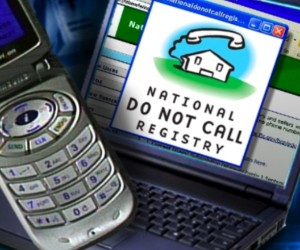
OTTAWA-GATINEAU, WASHINGTON – The CRTC and FTC are closing down a total of seven alleged tech support scams based mostly in India that tricked tens of thousands into paying from $49 to $450 for the removal of bogus viruses and spyware by allowing the scammers to remotely access their computers.
The CRTC is demanding Pecon Software Limited and Avaneesh Software Private Limited cease their current telemarketing practices and pay fines of $495,000 and $12,000 respectively for breaking Canada's telemarketing rules.
The CRTC charges these companies were making unsolicited telemarketing calls to Canadians who had registered their numbers on the National Do Not Call List. The scam was operated by telemarketers who masqueraded as major computer companies and deceived consumers into believing that their computers were riddled with viruses, spyware and other malware, and then charge hundreds of dollars to remotely access and “fix” the consumers’ computers.
"Foreign-based telemarketers have been put on notice that they must comply with our rules when calling Canadians," said Andrea Rosen, the CRTC's Chief Compliance and Enforcement Officer. "Canadians who receive these types of unsolicited calls are encouraged to file a complaint and should never give an unsolicited caller access to their computers or personal information."
The CRTC's investigation was part of a broader strategy involving close collaboration with the U.S. Federal Trade Commission (FTC) and the Australian Communications and Media Authority.

The FTC cases targeted 14 corporate defendants and 17 individual defendants in six legal filings, including Pecon Software. It charged the defendants with violating the FTC Act, which bars unfair and deceptive commercial practices, as well as the Telemarketing Sales Rule and with illegally calling numbers on the Do Not Call Registry. It asked the court to permanently halt the scams and order restitution for consumers and to freeze their assets.
In a press conference today FTC Chairman Jon Leibowitz said the bogus tech support calls from India to consumers may have sounded like “a bad Bollywood film” but created “virtual mayhem.”
The operations, mostly based in India, targeted English-speaking consumers in the United States, Canada, Australia, Ireland, New Zealand, and the U.K. According to the FTC, five of the six it charged used telemarketing “boiler rooms to call consumers.” The sixth lured consumers by placing ads with Google which appeared when consumers searched for their computer company’s tech support telephone number.
According to the FTC, after getting the consumers on the phone, the telemarketers allegedly claimed they were affiliated with legitimate companies, including Dell, Microsoft, McAfee, and Norton, and told consumers they had detected malware that posed an imminent threat to their computers. To demonstrate the need for immediate help, the scammers directed consumers to a utility area of their computer and falsely claimed that it demonstrated that the computer was infected. The scammers then offered to rid the computer of malware for fees ranging from $49 to $450.
When consumers agreed to pay the fee for fixing the “problems,” the telemarketers directed them to a website to enter a code or download a software program that allowed the scammers remote access to the consumers’ computers. Once the telemarketers took control of the consumers’ computers, they “removed” the non-existent malware and downloaded otherwise free programs.
FTC papers filed with the court alleged that the scammers hoped to avoid detection by consumers and law enforcers by using virtual offices that were actually just mail-forwarding facilities, and by using 80 different domain names and 130 different phone numbers.



